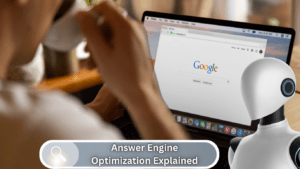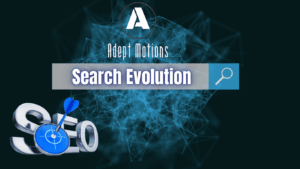AI Marketing: The Good and Bad Explained

Table of Contents
Introduction to AI Marketing
The landscape of marketing has transformed with the rise of artificial intelligence, often referred to as AI marketing. This innovation allows businesses to fine-tune customer engagement strategies with a level of precision previously unattainable. AI marketing encompasses a variety of tools and technologies designed to automate and optimize marketing efforts. These advancements are not just for big players; they offer tremendous potential for smaller businesses to compete effectively in the marketplace.
AI marketing brings a unique set of capabilities to the table, enabling companies to gather and analyze customer data at an unprecedented scale. By leveraging machine learning algorithms and predictive analytics, businesses can better understand consumer behavior, predict trends, and tailor their strategies accordingly. This data-driven approach helps in crafting more targeted campaigns, ultimately leading to higher engagement and conversion rates.
Additionally, the automation aspect of AI marketing frees up valuable time and resources. Tasks that were once manual and time-consuming, such as data analysis, content creation, and customer segmentation, can now be handled efficiently by AI-driven tools. This efficiency allows business owners to focus on strategic decision-making rather than getting bogged down by operational details.
Another significant advantage is the ability to personalize customer interactions. AI can analyze individual preferences and behaviors, enabling businesses to deliver customized experiences that resonate more deeply with their audience. This level of personalization can foster stronger customer relationships and loyalty, which are crucial for long-term success.
However, as with any technology, it’s essential to approach AI marketing thoughtfully. Understanding its capabilities and limitations will help businesses harness its full potential while mitigating potential risks. The integration of AI into marketing strategies offers an exciting opportunity to revolutionize how businesses connect with their customers, paving the way for more intelligent and effective marketing.
Advantages of AI Marketing

One major advantage of AI marketing is its ability to reduce costs, particularly beneficial for small businesses. By automating repetitive tasks, AI-driven tools minimize the need for large teams, helping businesses allocate their resources more efficiently. This cost-saving aspect can make a significant difference for companies operating on tight budgets.
Another noteworthy benefit is the time saved through AI automation. These tools can swiftly analyze massive datasets and generate actionable insights, a process that would be labor-intensive and time-consuming if done manually. With these capabilities, business owners can develop more effective marketing strategies without the need to spend countless hours on data analysis.
AI also democratizes access to advanced marketing techniques. Previously, sophisticated strategies were mostly within reach of larger enterprises with substantial resources. Now, smaller businesses can leverage AI to implement these advanced methods, making it easier to compete with larger players. This technology allows for a more level playing field, enabling businesses of all sizes to engage their target audiences more effectively.
In addition, AI marketing tools offer enhanced precision in targeting and personalization. By analyzing consumer behavior and preferences, AI can help businesses craft highly tailored marketing campaigns that resonate more deeply with their audience. This level of personalization can lead to higher engagement and conversion rates, directly contributing to business growth.
Lastly, the predictive capabilities of AI marketing tools are invaluable. By forecasting trends and consumer behavior, AI enables businesses to stay ahead of the curve, adapting their strategies proactively rather than reactively. This forward-thinking approach can provide a competitive edge in a rapidly changing market.
Overall, the advantages of AI marketing are manifold, offering significant improvements in cost efficiency, time management, targeting precision, and strategic foresight.
Challenges of AI Marketing

AI marketing offers numerous benefits, but it also comes with its set of challenges. One significant challenge is the initial investment required. Acquiring the right technology and training staff can be expensive, especially for businesses with limited financial resources. The long-term benefits are undeniable, but the upfront costs can be a barrier to entry.
Another critical challenge is the reliance on high-quality data. AI tools are only as good as the data they are fed. If the data is inaccurate, outdated, or incomplete, the resulting insights and recommendations will be flawed. This dependency means businesses must invest in data quality management to ensure their AI tools perform optimally.
Privacy concerns also pose a challenge. With increasing regulations around data protection, businesses need to be vigilant about how they collect, store, and use customer data. Failing to comply with these regulations can result in hefty fines and damage to reputation.
Additionally, there is the risk of over-reliance on automation. While AI can handle many tasks efficiently, it lacks the human touch essential for certain aspects of marketing. Over-automating can lead to generic and impersonal interactions, which may alienate customers.
Finally, integrating AI into existing systems can be complex. Many businesses operate with legacy systems that may not be compatible with new AI technologies. This incompatibility can lead to additional costs and time delays as businesses work to integrate and streamline their operations.
Navigating these challenges requires a strategic approach, ensuring that the benefits of AI marketing are fully realized without compromising the quality and integrity of marketing efforts.
Real-World Applications

AI marketing has become a game-changer for small businesses, offering practical solutions that can significantly enhance their marketing efforts. One of the most effective applications is the use of AI-powered chatbots. These virtual assistants can manage customer inquiries around the clock, providing immediate responses and freeing up human staff for more complex tasks. This technology not only improves efficiency but also boosts customer satisfaction by ensuring timely communication.
Another impactful application is in email marketing. AI-driven platforms can analyze user behavior to determine the optimal times to send emails and tailor content to individual preferences. This level of customization was once labor-intensive but can now be achieved effortlessly, leading to higher open rates and better engagement.
AI is also transforming social media management. Tools that utilize AI can schedule posts, analyze audience interactions, and even suggest the best types of content to share. This helps businesses maintain a consistent online presence without the need for constant manual updates.
Predictive analytics is another area where AI is making a substantial difference. By analyzing past data, AI can forecast future trends and consumer behaviors. This enables businesses to proactively adjust their strategies, staying ahead of market changes and customer expectations.
AI-powered recommendation engines are equally beneficial. These tools can suggest products or services based on a customer’s previous interactions, enhancing the shopping experience and driving sales. Such personalized recommendations were once the domain of large corporations, but AI has made them accessible to businesses of all sizes.
Incorporating these AI applications into daily operations allows small businesses to operate more efficiently and compete more effectively. The potential of AI to transform marketing strategies is immense, offering tools that were once out of reach for smaller enterprises.
Balancing AI with Human Input

AI marketing has revolutionized how businesses operate, but it’s essential to maintain a human element in customer interactions. AI excels at handling routine tasks, analyzing data, and providing insights, but it lacks the emotional intelligence and creativity that only humans can offer. To create a well-rounded marketing strategy, businesses should blend the strengths of both AI and human input.
For instance, while AI can generate data-driven recommendations for customer engagement, human marketers are better suited to interpret these insights and craft personalized messages that resonate emotionally. This collaboration ensures that marketing campaigns are not only efficient but also meaningful.
Moreover, human oversight is crucial for quality control. AI can sometimes make mistakes or produce content that doesn’t align with a brand’s voice. Having human team members review and refine AI-generated content helps maintain consistency and authenticity.
Additionally, complex customer issues often require the nuanced understanding that only a human can provide. While AI chatbots can handle straightforward queries, more intricate concerns should be escalated to human representatives to ensure customer satisfaction.
Incorporating AI tools frees up human staff to focus on strategic, creative, and empathetic tasks that foster deeper customer relationships. By striking a balance between AI efficiency and human touch, businesses can enhance their marketing efforts and build lasting customer loyalty.
Conclusion and Future Outlook

AI marketing holds promise for businesses seeking to improve their marketing efficiency and effectiveness. The technology offers substantial benefits, including reduced costs, enhanced targeting precision, and the ability to leverage predictive analytics. However, it also comes with challenges that require careful navigation, such as the need for quality data and initial investment costs.
Looking ahead, the integration of AI in marketing strategies is expected to deepen, offering more advanced tools and capabilities. Small businesses, in particular, stand to gain significantly by adopting these technologies, leveling the playing field with larger competitors. The key to maximizing AI’s potential lies in a balanced approach—merging automated efficiency with the human touch.
By thoughtfully incorporating AI while maintaining a focus on human creativity and emotional intelligence, businesses can create more impactful and personalized marketing campaigns. This strategic blend not only streamlines operations but also strengthens customer relationships. As the market evolves, staying informed about the latest AI developments will be crucial for businesses aiming to remain competitive and achieve sustainable business growth.
For more marketing tips that can help you grow your busieness and increase profits, be sure to read our following related articles.






























